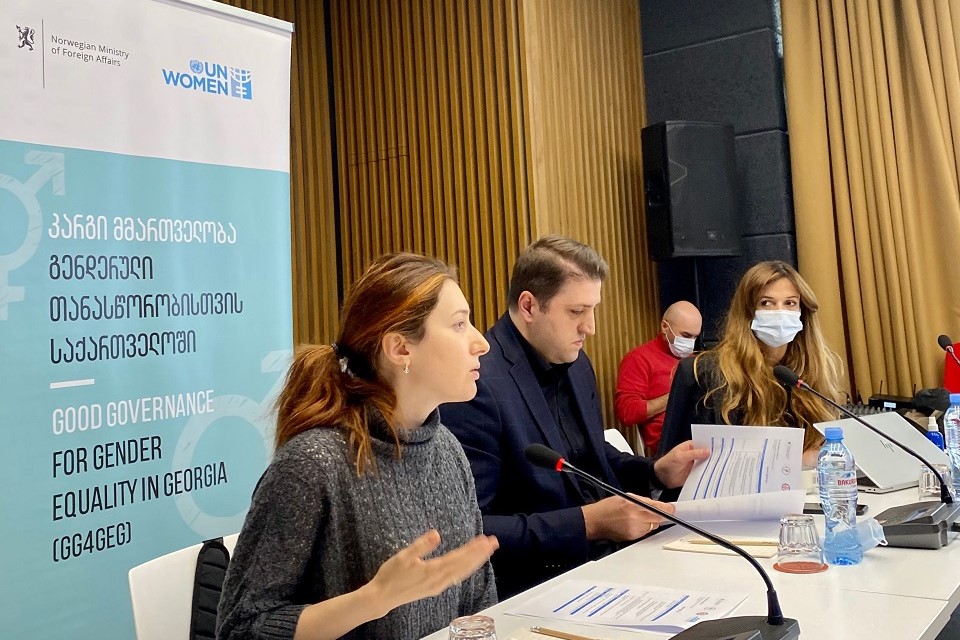Strengthening prevention and response mechanisms on sexual harassment in the civil service
Date:

Since the adoption of the landmark legislation on the prevention of and response to sexual harassment by the Parliament of Georgia in 2019, an increasing number of organizations have adopted internal sexual harassment complaints’ mechanisms with UN Women support.
On October 27-28, 2021, UN Women in partnership with the Inter-Agency Commission on Gender Equality, Violence against Women and Domestic Violence organized a workshop dedicated to effective functioning of the anti-sexual harassment mechanisms in public entities. The workshop brought together up to 20 representatives of ten state organizations to discuss challenges to effective operationalization of anti-sexual harassment mechanisms introduced in these entities and to identify priorities for future action. The workshop further aimed to support capacity development of civil servants on prevention and response to the instances of workplace sexual harassment.
Having internal complaints’ mechanism on sexual harassment in place is very important first step for gender mainstreaming in state entities and allows for effective implementation of Georgia’s legislative framework in the area of combatting sexual harassment. In 2018-2021 nine civil service organizations, including 42 per cent of Georgia’s ministries (5 out of 12 ministries) have set up anti-sexual harassment mechanisms with UN Women support. These developments were spearheaded by the Inter-Agency Commission and constitutes a part of UN Women’s larger initiative aimed at setting up sexual harassment complaints’ mechanisms across a wide spectrum of public sector and private sector organizations in Georgia.
“The workshop enabled us to discuss challenges and good practices from our respective agencies. It has further enabled us to plan specific activities for strengthening effective functioning of anti-sexual harassment mechanisms within our organizations”, - said Nino Kvirikashvili, Head of the Human Resources Management and Case Management Department at the Ministry of Regional Development and Infrastructure.
A study conducted by UN Women in cooperation with the Civil Service Bureau in 2021 revealed that in Georgia, 34 per cent of civil servants have experienced sexual harassment while working in the civil service. Women civil servants under the age of 35 were more likely to have been victims of sexual harassment. Survey results attest that the majority of sexual harassment cases go unnoticed by outsiders and remain unreported.
This work is taking place within the framework of the “Good Governance for Gender Equality in Georgia” project implemented by UN Women with the financial support of the Norwegian Ministry of Foreign Affairs.